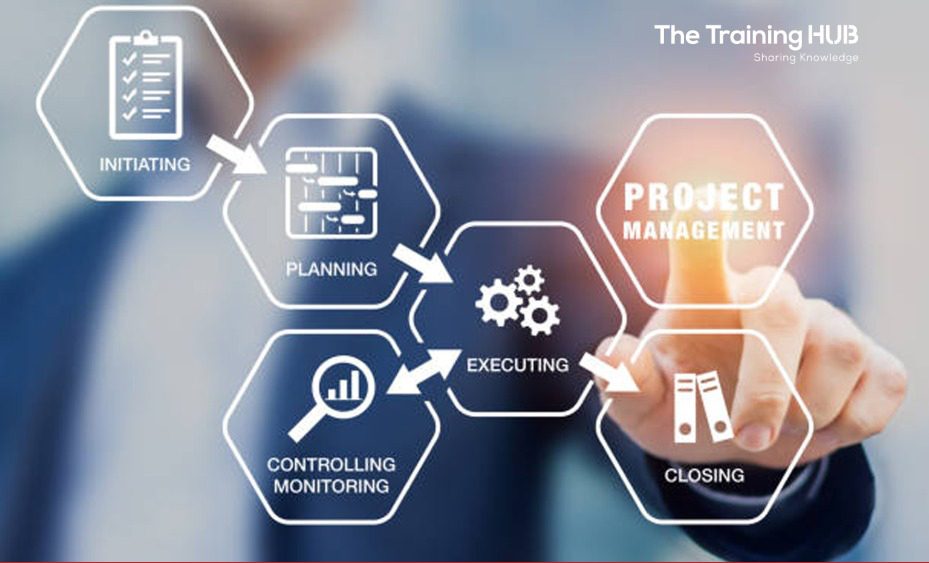Program Overview
Covering the entire project life cycle, this program is based on the best practices found in the Project Management Institute’s A Guide to the Project Management Body of Knowledge (PMBOK® Guide). In this program you will learn how to:
- Establish and accomplish goals that are linked directly to stakeholder needs,
- Utilize tried and proven project management tools to get the job done on time, within budget and accordance with requirements,
- Work through a proactive approach to risk that will give you a clear understanding of both qualitative and quantitative risk analysis.
Program Content
Foundations of Project Management
- The Nature of Projects and Project Management
- Project/Program and Portfolio Management
- From Strategic Planning to Project Management
- Management Criteria versus Engineering Criteria
- The Project Life Cycle
- Managing the Triple Constraints
- Managing Project Risks
- Managing Stakeholders
- The Project Manager’s Responsibilities and the Role of Senior Management
- Steps in Managing a Project
- The “Hard” Skills of Managing a Project
- The “Soft” Skills of Managing a Project
- Project Management Body of Knowledge (PMBOK)
- Project Management Maturity Level
- Typical Project Organization Structure
- The Project Management Office (PMO) Concept
- Basic Contract Types in Managing Projects
- The Generic Planning and Control Cycle in Project Management
- The Agile Lifecycle
- Defining the role pf SCRUM Master and Product Owner in an Agile Environment.
- The Talent Triangle of PMI.
- Define the Project Governance.
- Project Initiating, Planning and Scheduling
- The Project Charter
- Stakeholder Identification
- The Imperative of Planning
- Planning Definition
- Project Planning Overview
- The Project Plan
- Developing the Mission, Vision, Goals and Objectives of the Project
- Basic Project Planning Steps
- Identifying Success Criteria
- Developing the Requirements
- Scope Definition
- Procurement Planning: “Make or Buy” Decision
- Defining the Work Breakdown Structure (WBS)
- The Organization Breakdown Structure (OBS)
- The Responsibility Assignment Matrix (RAM)
- Defining and Sequencing Project Activities
- Estimating Activity Resources and Durations
- Staffing Management Plan
- Scheduling the Project Work
- Estimating Costs and Determining Budgets
- The Performance Measurement Baselines (PMB)
- Communication Planning
- Quality Planning
- Cost and Budgeting Planning
- Stakeholder Identification and Analysis
Risk Management Planning & Control
- Risk Management Overview
- Definitions of Certainty, Risk and Uncertainty
- Definition of Project Risks
- Definition of Risk Management
- The Primary Aspects of Risk Management
- Risk Management Planning Process
- Risk Identification
- Risk Assessment and Prioritization
- Qualitative Risk Analysis
- Quantitative Risk Analysis
- Risk Issue Filtering
- Risk Avoidance Plans
- Risk Contingency Plans
- Risk Tracking and Reporting Approach
- Risk Management Organization and Responsibilities
- Risk Management Plan Documentation and Risk Database Preparation
- The Output of Risk Management Planning
- Risk Management Control Process
- Risk Avoidance Plan Implementation
- Risk Contingency Plan Implementation
- Risk Reports and Reviews
- Risk Activities Effectiveness Evaluation
- Risk Management Plan Updates
- Flow of Risk Management Planning and Control Responsibilities
- Risk Management Process Flow
Project Execution, Monitoring & Control
- Directing and Managing Project Execution
- Monitoring Work Performance Information
- Managing the Project Team
- Managing Stakeholder Expectation
- Project Deliverables Tracking
- Manage Project Knowledge
- Project Control Definition
- The Objectives of Project Control
- Project Control Approach
- The Earned Value Management (EVM) Concept: An Integrated Project Control Approach
- Integrated Change Control
- Quality Assurance and Quality Control (QA/QC)
- Communication and Documentation Control
- Procurement Administration
Project Closure
- Effective Project Closure
- Project Closure Objectives
- Project Closure Plan
- Administrative Closure
- Lesson Learned
- Post-Project Evaluation
- Success Celebration
Program Benefits
Upon completion of this program participants will be able to:
- Establish project goals and objectives that are directly linked to stakeholders’ needs,
- Develop and use work breakdown structures,
- Develop realistic and measurable objectives to ensure positive results,
- Estimate project time and costs using proven techniques,
- Establish a project control system and monitor progress,
- Use a practical, step-by-step process to manage project risk,
- Identify threats and opportunities to your project, and weigh their relative value,
- Identify and overturn the psychological barriers to risk in stakeholders,
- Pass the PMI-PMP Exam.
Who Should Attend
- Project and Program Managers.
- Members of Project Management Office.
- Senior Management.
- Project Sponsor.
- Functional Managers.
- Supply chain Managers.
- Individuals who want to learn about Project Management or interested in PMP Certifications.
Course Duration
48 Hours
Registration Deadline
Three days before the course date..
Registration and Payment
- Open www.thetraining-hub.com/ Training Facilities/Course Registration and fill your registration form.
- Course fees include material, lunch, 2 coffee breaks and certificate.
- Payment by cheque in The Training HUB’s name, cash to our address or by bank transfer.
- Your registration is confirmed only after course payment
- Payment is non-refundable; however, participant can be substituted or can attend next confirmed round of the same course or another course.
For More Information
Phone: 02 22907369 / 22909369
Mobile: 01280720167- 01280653407
Email: info@thetraining-hub.com



